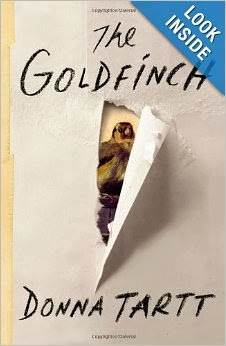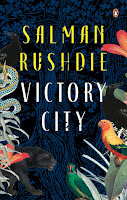The Secret History
By Donna Tartt
You are hooked from the first page. How can you not be? The narrator is confessing to a murder. So you know it’s not a whodunit (you know who the murderer is, don’t you?); yet it has all the thrill and intrigue of one. The dream-like, sensory world absorbs you, leaving you so enthralled that you have to drag yourself away to the real one. And everything there is suddenly a pale shadowy version of the one in the book. It’s like a drug-addled brain is being weaned away from the narcotics it so craves.
Okay, I exaggerate. But just a bit, really.
Richard Papen is a small town California boy who lands up in Hampden College in Vermont. The college is all that he has dreamed of - shockingly pretty, East-coast intellectual, as far removed from his mediocre, middle class Californian hometown as it’s possible to be. Richard is Jay Gatsby - completely smitten by the Ivy league-like glamour.
He falls into the company of a group of five students who take Greek and classical studies as their major - Henry the rich intellectual genius and the de facto leader, the twins Charles and Camilla, Francis with the trust fund and Bunny, the bluff and hearty bigot. Richard passes some sort of informal test and joins them, studying under an eccentric professor - Julian Morrow, who has handpicked these six students. Richard is enamoured by this group, completely sold on their cool intellectual snobbery and does all he can to belong. Their world is that of ancient Greece; the modern one has little meaning and significance. “Pur: that one word contains for me the secret, the bright, terrible clarity of ancient Greek. How can I make you see it, this strange harsh light which pervades Homer’s landscapes and illumines the dialogues of Plato, an alien light, inarticulable in our common tongue?” It truly is an alien land, filled with beauty that is unafraid to be harsh; that allows for Dionysian rituals, ecstatic and intoxicating, even as it appeals to cold, logical reason. “We don’t like to admit it,” said Julian, “but the idea of losing control is one that fascinates controlled people such as ourselves more than almost anything. All truly civilized people - the ancients no less than us - have civilized themselves through the wilful repression of the old, animal self.” This exploration of the animal self, the recreating of ancient rituals, collides with the modern world - and a man is killed. What this murder does to the six friends, how it affects each of them in different ways and the repercussions of it on their friendship forms the rest of the book.
There is something truly macabre and Gothic about the whole story, which is in essence an anatomy of a murder (or two). It calls to mind Bret Easton Ellis’ American Psycho, even if it never matches that book’s gruesomeness. What lifts it from mere horror though is the vein of beauty that runs through it. Tartt’s descriptions of the landscapes, the atmosphere, even the drug-infused mental maps of the students are almost lyrical. I think of Rossetti’s drawings and poetry, of Poe, of the paintings of Georgia O’Keeffe. “..that cavern of a room, with vaulted ceilings and a fire crackling in the fireplace, our faces luminous somehow, and ghostly pale. The firelight magnified our shadows, glinted off the silver, flickered high upon the walls; its reflection roared orange in the windowpanes as if a city were burning outside. The whoosh of the flames was like a flock of birds, trapped and beating in a whirlwind near the ceiling…. Julian, at the head of the long table, rises to his feet and lifts his wineglass. “Live forever,” he says…” Or, Henry describing the effect of an ancient ritual to Richard - “ Wolves howling around us and a bull bellowing in the dark. The river ran white. It was like a film in fast motion, the moon waxing and waning, clouds rushing across the sky. Vines grew from the ground so fast they twined up the trees like snakes; seasons passing in the wink of an eye, entire years for all I know…”
You are stunned by the beauty. And somehow the horror is part of the beauty. By the end of the book, you realize the truth of what Richard says right at the beginning - “ Does such a thing as ‘the fatal flaw’, that showy dark crack running down the middle of a life, exist outside literature? I used to think it didn’t. Now I think it does. And I think mine is this: a morbid longing for the picturesque at all costs.” And you know as a reader, you share that fatal flaw with Richard. Because you are ready to forgive the horror; as long as you can see the picturesque-ness of it.
The Secret History is supposed to be a cult book. I did not come into it, knowing that. But I can now understand how it became one. There is something very adolescent about it - the sort of book that as a young college student, you would worship. The intellectual references, the aesthetic atmospherics, the drug-induced hallucinations. As an adult too, you can feel the power. It took a while, after I finished reading it, to cast aside the spell.








